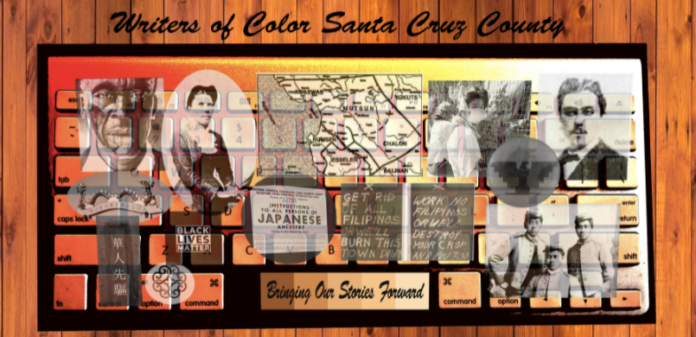WATSONVILLE—A virtual event created to highlight writers of color was canceled on Nov. 11 after a group of anonymous attackers logged on to their Zoom meeting, and then shouted racial and homophobic slurs and broadcast pornographic images.
Such an attack is known as a Zoombombing, named after the website that hosts many online meetings.
Several well-known writers were scheduled to read their work during the event, which was sponsored by Pajaro Valley Arts and Writers of Color Santa Cruz County and was part of the former’s ‘Mi Casa es Tu Casa’ annual exhibit.
This included Watsonville native Jaime Cortez, a gay Latino writer whose autobiography has garnered praise in reviews by NPR and the San Francisco Chronicle.
Cortez declined to be interviewed for this story, saying it would give the attackers attention they do not deserve.
Organizer Vivian Vargas, a member of Writers of Color Santa Cruz County, said the incident happened just after the event began, starting with flashing lights and shouts. The heckles eventually escalated to hardcore pornography.
Vargas was one of several participants who were removing the miscreants—she kicked out at least eight—who would quickly log back in again, in what she described as a game of “whack-a-mole.”
“It was just impossible to continue with the event,” she said.
The incident was not reported to the police, Vargas said, and the motive behind the attack remains unclear.
But the fact that the event was hosted by Writers of Color Santa Cruz County was not lost on Vargas.
“We had Latinx, we had Black, we had Asian, we had Native American writers who were going to participate and none of them got the opportunity to read,” she said. “This was more than annoying, this was vicious, and I wondered if this had been European writers reading poetry, would that have been an event they would have chosen to Zoom bomb?”
Investigating such an attack can be difficult for law enforcement, says Watsonville Police spokeswoman Michelle Pulido, because it is so hard to track down the perpetrators.
Because WPD lacks a computer forensics team, police here would turn to the FBI or the Santa Cruz County District Attorney’s Office for serious cases, Pulido says.
In an emailed statement, Zoom spokesman Matt Nagel said that the company “strongly condemns” such behavior.
“We are committed to maintaining an equal, respectful and inclusive online environment for all our users,” Nagel wrote. “We take meeting disruptions extremely seriously and, where appropriate, we work closely with law enforcement authorities.”
Nagel says that anyone experiencing a similar attack should report it to Zoom and contact law enforcement authorities.
Zoom recommends that users avoid sharing private meeting links and passwords publicly on websites, social media or other public forums.
The attack was not the first of its kind that occurred locally.
Micah Perks, a UCSC professor who runs the creative writing program there, said that a nearly identical attack occurred in Spring 2021 in a “Living Writers” series in which a Black female poet was scheduled to speak.
Organizers quickly kicked out the bombers from the UCSC event, but the attack has changed the way the college hosts some virtual meetings, Perks said. The remaining “Living Writers” workshops were hosted under increased security that removed some of the intimacy of the events by requiring attendees to be on an audio-only function.
“It was really an alienating experience, with consequences for us,” she said. “It was no longer a community-building experience.”
Despite the fact that the attack cast a pall over the event, Vargas says that organizers will not back down from hosting the event, although they will impose added security measures when it is rescheduled.
“We will have our stories told,” she said.














